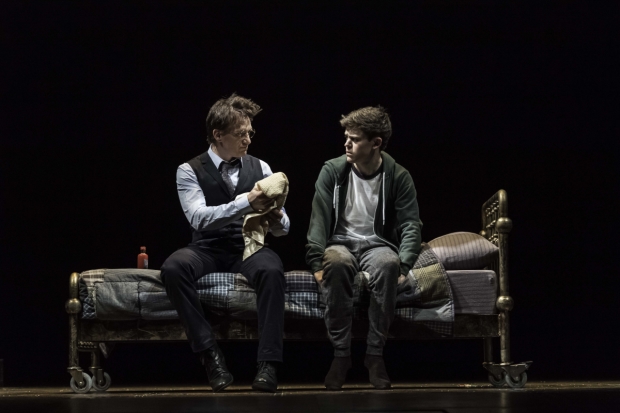Sarah Crompton: Harry Potter reminds us why theatre should be a joy, not a duty

© Manuel Harlan
According to the producers, more than 50 per cent of the people booking tickets have never been to the theatre before. This means that this one production is suddenly, inadvertently, in the position of building a new audience for theatre as a whole. Perhaps if they like what they see, then they will return to try other things.
When I talked to JK Rowling, the director John Tiffany and the writer Jack Thorne all were very explicit about the responsibility. "The phrase John hates more than any other is ‘I should go to the theatre more often’ because it contains the idea that going to the theatre is an obligation," said Thorne. "Like eating your vegetables," Rowling added. "Or going to church," said Tiffany.
It is an affectionate guide to all the magic that theatre can breathe into life
Thorne continued: "And that is the death of theatre. This is an opportunity, I guess, to get people who don’t feel they should go to the theatre to go to the theatre, and then discover that they want to go to the theatre."
That is exactly his gift. But Harry Potter helps people lean in in other ways too; the ushers are unfailingly friendly. People smile and ask you how you are. The fabric of the theatre itself – somewhat forbidding let’s be truthful – has been refurbished to make it a suitable setting for the event.
I know it is a hard life serving behind a bar or showing people to their seats, but I wish it was done with better grace
I spend a lot of time sitting in theatres up and down the country, and am sometimes disappointed not only by what I see on stage, but what I experience around it. I know it is a hard life serving behind a bar or showing people to their seats, but I wish it was done with better grace. The ongoing funding crisis leads to a tendency to play safe and encourages older, established audiences rather than young ones; even when young people are making the work, revisiting classic plays in bold new ways, the people watching are often exactly the people who have always watched.
There is a lot of good work out there, I am not sure how welcoming and encouraging it feels. It’s not a question of talking down to a young audience, but perhaps it is a matter of remembering why theatre matters and what it can do. How the basic impulse to gather together in a room and be involved in something that matters is essentially a joy not a duty.
Harry Potter and the Cursed Child runs at the Palace Theatre until December 2017.










